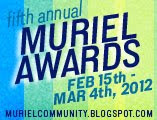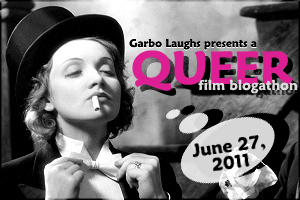David Cronenberg has always included a strain of horror toward women and female sexuality in his films. The monstrous feminine often manifests itself in birth in Cronenberg's films, but the very idea of the vagina itself is a figure of horror, to say nothing of the idea that women might actually want to use them for pleasure. Unease with feminine bodies and sexuality is behind images like the birth scenes in The Brood and The Fly, the vaginal slit in James Woods's belly in Videodrome, the psychosexual dysfunctions in A Dangerous Method, the sexual possibilities of open wounds in Crash, the many faces becoming one face in Spider, the Mantle brothers' profession and inventions in Dead Ringers, and so on. Throughout his career and with only rare exceptions, Cronenberg has framed the monstrous feminine from the point of view of men. Confronting the feminine is often what knocks Cronenberg's protagonists out of their comfortable, sensible realities into the chaos beneath them. The critic, Robin Wood, once described Cronenberg's view of sex as both reactionary and infantile for this very reason. Though I think Cronenberg's approach more nuanced and more...um...perverse than that, I can see Wood's point.
Maps to the Stars (2014), the first of Cronenberg's films in forty years to center itself specifically on women, is a departure. It's a view of the monstrous feminine from the point of view of women. As such, it's a writhing chaos of sexual horrors. Or something. Its about movies and fame, too, and about Cronenberg's movies, in particular. It's a perverse film. Of course it's a perverse film! You expect that of Cronenberg even after all this time.
The story follows the fortunes of Agatha, returned to Los Angeles after time away. At some point in her mysterious past, she was burned, and she hides the burns with long black leather gloves, though they don't conceal all of them. On her trip into the city, she meets a limo driver to whom she is attracted. She shows him the site of her family's home in the shadow of the Hollywood sign, now burned to its foundations. The story also follows the fortunes of Havanna Segrand, an aging actress intent on remaking a film her mother starred in shortly before her suicide. She's haunted by her mother's fame, and is desperate to hold on to her own career even as it becomes apparent that another actress is going to get the part. She's in need of a new assistant. She hires Agatha. Havanna is acquainted with Dr. Stafford Weiss, new age doctor to the stars and the father of Benjie Weiss, a child star of a famous series of comedies. Benjie is freshly out of rehab and keen to restart his career with another sequel. He's jealous of his younger co-star and he resents having to abase himself to prove that he's sober. Benjie's family has a dark secret in their past, one involving Agatha, who Stafford tries to buy off. Agatha, for her part, stops taking her meds--she returned to Hollywood from a stay in a mental hospital--tries to re-connect with her family, particularly her brother, Benjie. Meanwhile Havanna is increasingly beset by visions of her mother, even after she lucks into the role she craves. She also craves the adulation of those around her. She can't stand the idea that Agatha might have a boyfriend, so she fucks him in the back of a limo. Agatha takes this badly, and it sets her on a path of destruction...
This far into a long career, it's nice to know that David Cronenberg can still make movies that transgress, that send one to the parking lot muttering, "What the fuck was THAT?" It's a hard movie to like, but many of Cronenberg's movies are hard to like. That doesn't stop them from worming themselves into your subconscious. Even if you walk away from them annoyed at what's on the screen or puzzling over why things played out the way that they did, they follow you.
Maps to the Stars assembles a fine cast of neurotics and psychotics to ride roughshod over Hollywood's version of creativity, but for the most part, it's not interested in Hollywood qua Hollywood. I have no doubt that Hollywood itself is as looney as what's on the screen here, though probably in different ways. Oh, the industry devours the young, as this film's plot devours Agatha and her brother, sure, and it uses up actresses and discards them in middle age, as this film shows. But this film isn't necessarily about any of this. That's all just plot. Instead, this is a film about media as conduit of reality, of identity played out as sexuality, of modified minds and bodies interacting. It's about debunking glamour by revealing that it's all just biology. That last bit is accomplished with a clear debunking of its actresses as ethereal beings on the screen. In one uncomfortable late scene, Havana becomes incensed at Agatha for spotting her white couch with her period. In another, Havana is seen wiping her crotch after energetic sex with Jerome in the back of his limo. This is all calculated to puncture image with an awareness of its characters as biological entities first and foremost. Agatha is further adorned with mysterious burns, which she covers incompletely with long, fetishy leather gloves, removing her even further from any ideas of movie-star beauty. The film elides more than a little bit of horror at this physicality.
Both Julianne Moore and Mia Wasikowska are up for this as Havana and Agatha, respectively, showing a wonderful disregard for their own mystique as movie stars. Havana is notable for being everything that Moore herself is not: desperate for parts, desperate for THE part, desperate for the faux-love that movie star adulation provides, desperate to return to the womb and become some version of someone else. Havana is off her rocker, and you don't even need her frequent hallucinations in which she's haunted by her perfect movie-star mother to see it. Agatha is a different kind of feminine monster: she's the madwoman in the attic, shuffled off to an asylum by embarrassed parents who would just as soon never see her again. She's medicated, though she goes off those meds when her father tries to buy her off. She's not quite an avenging angel or the golden apple of discord, thrown into the middle of the film like a hand grenade, but she's close. But, of course, almost everyone else in the film is some kind of lunatic, too. Agatha's brother, like Havana, is seeing things as his rehab begins to slip away. Agatha's mother is consumed by guilt. Her father is a charlatan whose family are props at best. This is a film where the competing realities of the characters don't generally mesh on the best of terms.
This is a haunted movie. Its hallucinations play like ghostly apparitions, whether it's Havana's mother lounging in the tub or caressing her as she recovers from a massage, or the girl from the cancer hospital that torments Benjie. We never see Agatha's set of reality from her own point of view, but she functions as a ghost unto herself when she re-enters her parents lives, and that seems to be enough. We also get a glimpse of her own ideation of self when she finally re-connects with her brother at the end of the film, when this becomes another of the director's films about dysfunctional sibling relationships.
As much as the characters are haunted, so too is the film itself haunted by the director's other films: John Cusack's Stafford Weiss is another version of The Brood's Dr. Ragland, filtered through the videodromic retina of television. Agatha and Benjie enact the same kind of doom that befalls the Mantles in Dead Ringers. Robert Pattinson is again tasked with having backdoor sex with someone in the back of a limousine, which hearkens back not only to Cronenberg's last movie, but to Crash as well. Cronenberg has one of the most recognizable private universes of any director, and this film is firmly planted inside that universe. He's a true auteur. Much of this is well worn territory and this film doesn't dive deep into any of it, just as it doesn't dive deep into the fame monster. This film excels, rather, at shifting the viewpoint on Cronenberg's universe away from the male gaze and toward the female gaze. In this regard, he's fortunate in his interpreters.

I'm using Patreon as a means of funding my blogs. They don't have a widget yet, so this link will just have to do. If you like my writing and art and if you'd like to support Krell Laboratories and Christianne's Art and Comics, please come on over and pledge. Thanks.




















1 comment:
Superb review. I've watched this film more than once - it continues to grow with each viewing. As wonderful as Julianne Moore is as Havana, I found that it was Mia Wasikowska's performance as Agatha that was the most haunting and touching, in a twisted kind of way.
Cronenberg is a true creative force.
Post a Comment